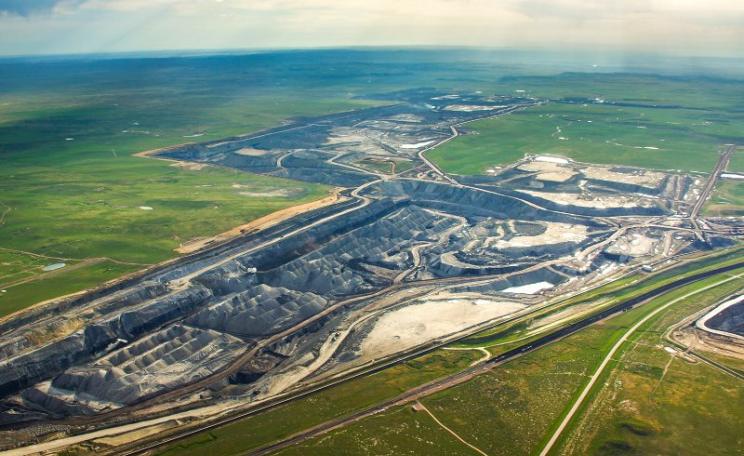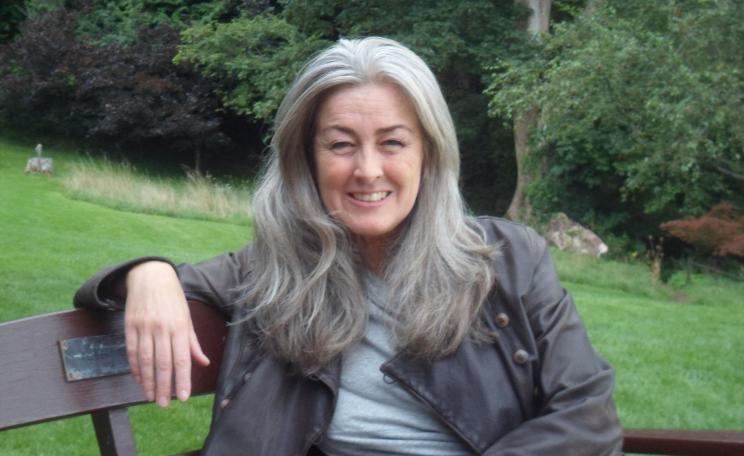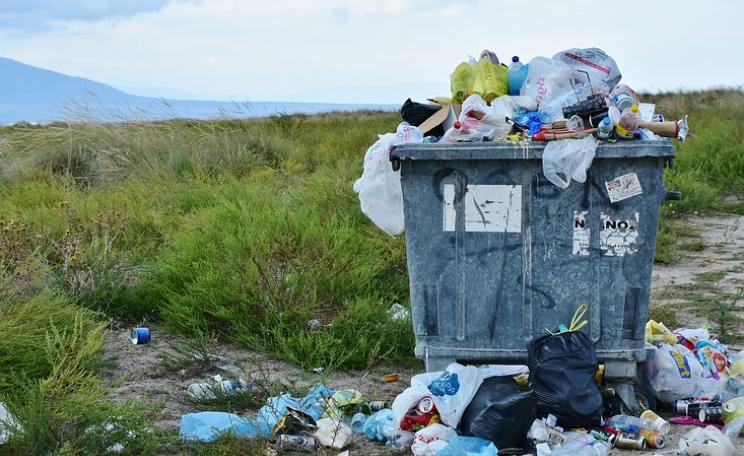Why doesn't ADEM do its job and do the footwork required to protect people? ADEM doesn't care. What does it take? Us in a casket?
In 2008 the largest coal ash spill in US history took place at Kingston, Tennessee.
A billion gallons of coal ash burst through a dike, before spreading across 300 acres of riverfront property, destroying two dozens home.
In 2010, after residents of the predominantly white, middle class Kingston community complained about the lack of cleanup, the Tennessee Valley Authority chose to move it 350 miles south to the Arrowhead landfill in Uniontown, Alabama - where 88.2% of the population is African American.
The landfill was originally approved as a small local landfill for domestic and construction waste. But now it's permitted to receive waste from more than 30 states along the East Coast from Rhode Island to Florida, and as far west as Oklahoma.
And then the health problems began
After the coal ash began arriving, the residents of Uniontown began experiencing headaches, dizziness, nausea and vomiting. Nosebleeds, sore throats, skin rashes, asthma especially in children, and inflamed sinuses are commonplace afflictions.
Perhaps that's not so surprising: coal ash, which contains arsenic, mercury and lead, has been linked to cancers, stroke, heart disease, kidney, liver and brain damage, asthma, and anemia and developmental damage in fetuses.
And the landfill site was originally uncovered - so the toxic ash could blow into nearby streets, yards and homes, while water laden with coal ash ran out into creeks.
Uniontown residents complained - but to no avail. So they began to investigate - and found that the Alabama Department of Environmental Management (ADEM) had reissued the landfill's permit without proper and enforceable protections of public health.
ADEM had, further, ignored both the widely recognized dangers of coal ash and the objections of Uniontown residents.This formed the basis of a civil rights complaint, that ADEM had failed to take actions to avoid disproportionate adverse impacts on the basis of race.
Earthjustice supports the community complaint
In 2013, Earthjustice began representing community residents who filed the civil rights complaint. Marianne Engelman Lado, lead attorney on the complaint, said:
"Many people live across the street from the dump, just yards away. People return to Uniontown to live on their family homestead and enjoy the fresh air and quiet way of life. Now, their water is polluted and air contaminated. They can't sit on their porch without the acrid smell of the landfill and fear for their health."
The reissuance and modification of the permit, Earthjustice argues, has an unjustified disproportionate adverse effect on the basis of race in violation of Title VI of the Civil Rights Act of 1964 and its regulations.
Why doesn't ADEM do its job and do the footwork required to protect people? ADEM doesn't care. What does it take? Us in a casket?
Esther Calhoun, a complainant who was born and raised in Uniontown, asked: "Why doesn't ADEM do its job and do the footwork required to protect people? ADEM doesn't care. What does it take? Us in a casket?"
Hurricane Creekkeeper John Wathen visited both Kingston, Tennessee, and Uniontown after the spill and the transfer of the coal ash:
"When it was in Tennessee, it was treated as if it was hazardous material because the white middle class folks made sure it was handled that way. Then it came down here and they treated it like it was just household waste. Why is it hazardous in Tennessee and not in Uniontown?"
Gardens left barren, wealth wiped out
"People complain of how once vibrant and fertile vegetable gardens that fed their families for generations are now barren, and fruit trees are dotted with deformed and withered fruit", wrote Earthjustice's Community Partnerships Manager Debra Mayfield, reporting on her visit.
"Fears of plummeting property values plague the community, as well. We met several families that worry that the land that their parents, grandparents or great-grandparents purchased as far back as the turn of the century is worthless. Many who looked forward to retiring on their ancestral property are thinking of leaving - if they can.
"As one member of the community said, 'Who would want to buy this house behind a dump of human waste and coal ash?' There's an overwhelming feeling of being stuck on land that should have been a haven in the twilight years of many of the community members.
Brothers Stanley and Larry White echo this frustration, and heartbreak. The land they live on was acquired by their great-grandparents almost 80 years ago, a time when ownership of land by African Americans was difficult and, too often, dangerous to realize.
"Now, this emblem of their family's hard work and persistence is a frequently foul-smelling perch for buzzards."
US-EPA investigates
Investigators from the US Environmental Protection Agency last week interviewed Uniontown residents, to probe the charges that their civil rights were violated by ADEM.
Among those they met were William Gibbs and his wife (see photo), who live near the dump. "I wanted to move away from the noise and the hardness of the city. So I came here for some peace and quiet in the country", says Gibbs. "Now they've pushed this thing right on top of us. Now, I'm too old to move and no one would want to buy this place anyways."
Coal ash is America's second largest form of industrial waste and is known to have contaminated 200 lakes, rivers, streams and water aquifers in the US.
The EPA will finally regulate coal ash disposal by publishing a final rule in December 2014 after years of pressure. However the impact on Uniontown is unclear.
Oliver Tickell edits The Ecologist.







